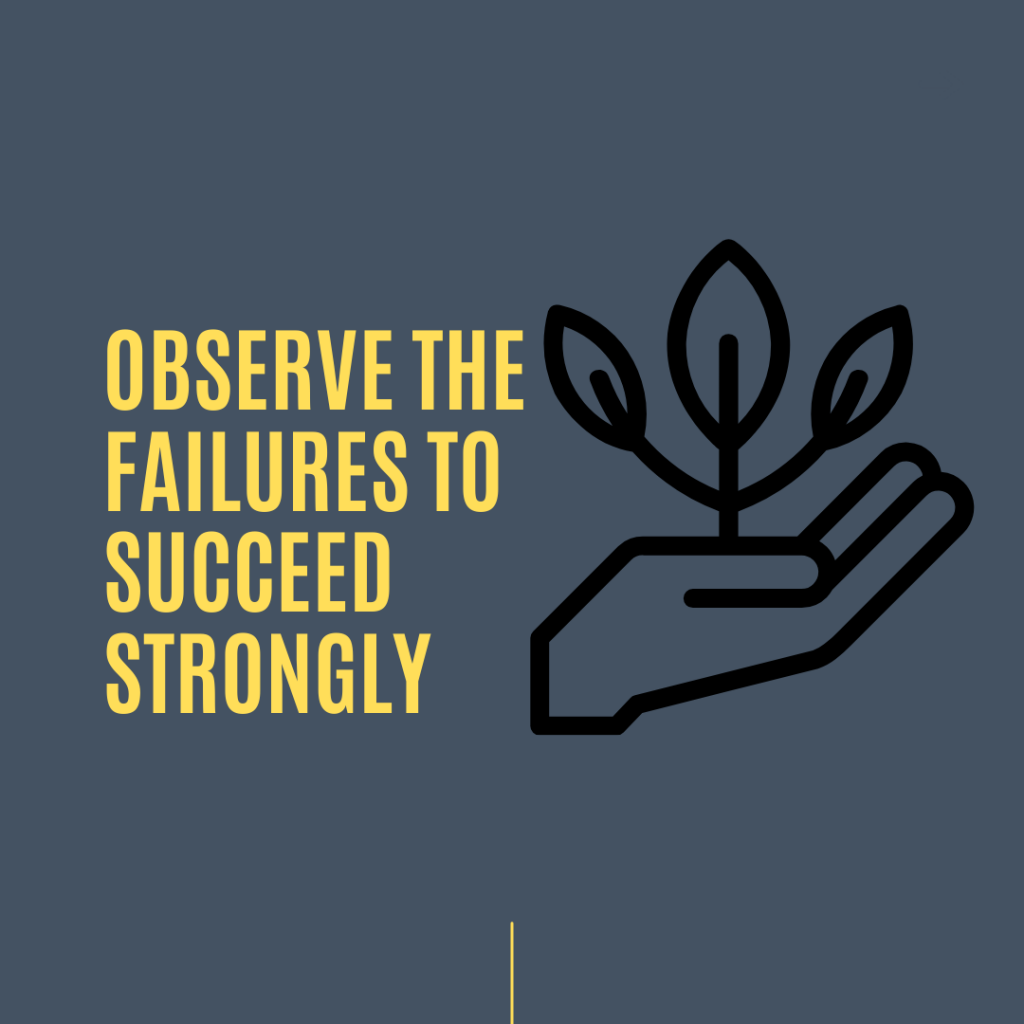
Chandramoulee Palani (PGP 2001)
I had this startling advice from a colleague when we were debating how we or our teams should improve. He said that the standard mantra is to identify areas of weakness, deficiencies etc and then work to address them. Instead, his view was that we should identify our strengths and build on them – this he said was the most crucial and very easily doable, but rarely looked at. We live in a multi parameter world and with exceptions on glaring deficiencies, more often we should be able to make up with a vastly high score on our strong parameters much faster than plodding to enhance our weaknesses.
Now with that background, to illustrate that there is possibly a better way to look at our favourite pearls of wisdom, I have a very different take on this article’s topic – not the traditional, Fail so that you may succeed strongly. I say we should actively look for failures around us, ah there is no scarcity, and these should inspire us to succeed without ever having to fail ourselves. You just have to be a keen observer – that awesome quality that we all had as kids, that’s how we got through the early years. Later on, we lost this ability but did gather the knowledge to manage along. Now, bring together that ability to observe and gather knowledge on success parameters – you’ll know how to get what you aspire, without having to fail yourself along the way.
Please allow me to exemplify this here. Take any parameter, let’s say Collaboration. Now, look around keenly. Really keenly, not missing anyone around you – from your family members, friends, neighbours, colleagues, anyone – don’t even miss your building security guard. Everyone in your life, whom you have a pretty good to at least a reasonable ability to observe, count. Think how they behave as individuals interacting with others towards achieving their individual/collective goals. For example, look at your son – you’ll see that he isn’t making too much headway in his circle, given he’s too possessive with his toys. Look at your colleague, she isn’t making much progress in her latest project, because her teammates don’t like her being too arrogant about her recent win. Look at your local ward councillor – how she is effectively building bridges with all the communities in the locality and thus displaying effective administrative qualities, where her predecessor failed.
Take leadership for the next illustration. Look at your uncle, what could be have managed better in order for his family to have been more prosperous? Look at your manager or her manager – where in your opinion are they failing, maybe they lack the charisma, maybe they delegate too much, maybe they don’t understand the changing ground realities? Take a look at your local grocer – does he ill-treat his shop boys, they in turn sulk and don’t do their best customer service. Look at your local building secretary – it’s only an honorary job, yet what can you learn from his enthusiasm for the smallest of details, that your colleagues don’t show in their paid jobs.
And you get the idea? As you look at all the people and assess their failure at effective collaboration, you intuitively develop the nuance or in other words, the ‘do and don’t’ of an effective collaborator or leader and so on.
Now, an important aspect here is you are being judgemental, construing someone’s specific action as a failure, according to your set of assessment parameters. It is however important to distil only the lessons and not pass any judgement on the person overall, also not letting it affect your relationship with them. If you think it is difficult, choose observing people outside your immediate circle, where you would prefer a mindful, non-judgemental relationship, just the way you were in your earliest learning years!

